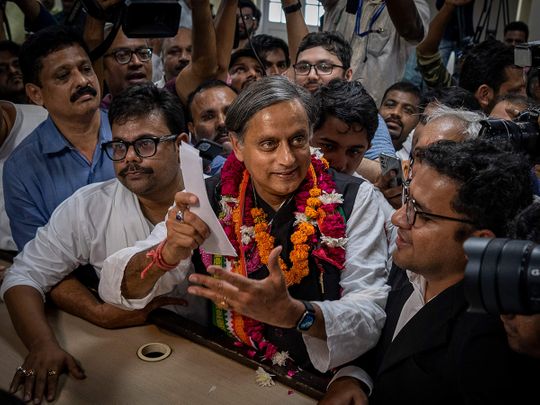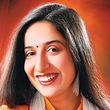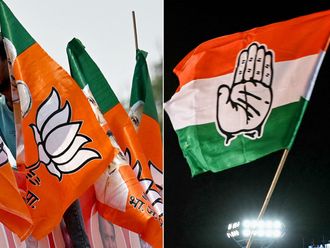
A seasoned parliamentarian, acclaimed author, and prominent public intellectual, Shashi Tharoor’s journey in the political arena has been nothing short of remarkable. As he gears up for yet another electoral battle in Thiruvananthapuram, we delve deep into the complexities of his political odyssey, his reflections on three terms as Member of Parliament, and his unwavering commitment to principles amidst the shifting tides of Indian democracy.
Here is Swati Chaturvedi in a candid conversation with Shashi Tharoor for Gulf News, exploring the intersections of politics, literature, and personal ethos in his multifaceted life.
Do you think that this time you’ve got a fight on your hands with Rajeev Chandrasekar being your opponent?
I’ve always respected my opponents and their ability to put up a strong campaign, be it the CPI candidate (I took the seat from his party in my first campaign) or the BJP candidate (the BJP came second in both 2014 and 2019). This time is no different.
I expect a strong contest from both my main opponents, former MP Pannyan Raveendran or the BJP’s Rajeev Chandrashekar — but I also remain completely confident in my ability to once again succeed. Both because of my strong and visible track record of service to the people of Thiruvananthapuram in my 15 years as their MP, and because my stands on national and global issues resound with the majority of my electorate.
How tough is it to represent a huge Lok Sabha constituency as the MP? Did you have any idea of what exactly you were getting into when you first contested Thiruvantpuram?
I didn’t have a clue what I was getting into when I first said yes, I was willing to contest! I had left India at 19 to go to graduate school in the US at a time when the voting age was 21, so I hadn’t even voted, or seen a Lok Sabha election up close. I was completely unprepared for what I was plunged into.
In many ways that first election was the hardest thing I’ve ever done, harder than walking through minefields in Bosnia during the Yugoslav civil war or trudging the Somalia-Ethiopia border during the 1980 famine. And then the challenges didn’t stop with my win.
My journey into Indian politics has come with more than my fair share of crises and obstacles. I’ve often said that I have endured several agniparikshas. But being able to serve the people of Thiruvananthapuram, to be their active voice in Parliament and to channel their concerns and aspirations in New Delhi and before the government has been a hugely gratifying experience.
It’s not easy to address all of their concerns at one go, especially as an MP from a party that is in Opposition in both the centre and the state, but I have still used every network and connection available to bring about tangible progress in the constituency I represent. In addition I am pleased to have been something of a thought leader or various issues and to have moved the needle on the national conversation on subjects that matter in India.
What is the biggest takeaway as a three term MP?
Several. First, the opportunities for development. From bringing in vital progress on key infrastructure projects like the NH Bypass and the Vizhinjam port, which will transform the constituency and unlock a wide range of economic benefits, to improving livelihood opportunities by convincing major multinational companies like Oracle, Nissan and Taurus to set up shop in Trivandrum and hire local talent, to improving the day to day lives of citizens through the establishment of a number of consulates, construction of roads, projects financed through my MPLADS funds and, last but not least, my active presence and participation in Parliament where I have served as the voice for my people.
There have also been some valuable life lessons. I found out the hard way that trust and loyalty, which have always been important values in my life, are debased currency in politics. Many are loyal only to themselves and trust is too easily betrayed. Second, that principles and convictions, which were core to my involvement in politics in the first place, do not mean the same thing to all politicians.
Some find them dispensable when self-interest demands. Third, that humour, which always used to feature in my daily life, provides more pitfalls than pleasures in Indian politics. I learnt that it doesn’t matter what your intent or spirit was in saying something — all that matters is what people heard, or were made to understand. I crack fewer jokes these days in public!
Any regrets as a public figure who’s had to give away most of his privacy?
Sometimes. But one expects this when you take a decision to join an avenue like our mainstream politics or be active in the public domain. The media and the opposition decided my private life was of great interest to them and that obliged me to make some adjustments. Our prevalent culture also means that simply going to the market or visiting a popular tourist site is no longer possible without being besieged for selfies!
My only small regret is that there does not seem to be enough time to do everything one wants to, but that is just life. I can only make the best of the time that I have, be it as an MP or a writer or a politician — and I believe I have been able to do so, even if it is at the cost of healthy lifestyles, being chronically sleep-deprived or lacking time for other personal passions like reading and watching cricket.
You are a public intellectual, writer & what can only be called as a cult figure in literature festivals. How do you do it all? And, how do you balance all the hats you wear?
Look, it’s simply who I am. I can’t claim credit for being myself! I’m a human being with a number of responses to the world around me, and I express them though my words as well as my actions, in writing and in speaking. I have enjoyed the ability and privilege to be able to contribute to the public discourse and to further the values, ideas and principles that I believe in through the platforms and avenues that I have. And it’s gratifying that so many people seem to appreciate what I have to say, what I’ve done and what I stand for.
You lost the contest for the Congress President and your party has literally been careening down the loser’s slope? What exactly ails the Congress party?
I don’t think that is a fair assessment. As I argued before the elections (which has since been proven to be true) the process of having democratic internal elections certainly galvanised the party, bringing in much needed revival and change and even, to some degree, an infusion of new faces and leaders in key decision-making forums of the party. As a result, the party is much more active and dynamic now than it was before the party presidential elections.
I contested the elections for this precise reason: because irrespective of the result, it would strengthen the hand and reach of the party and that I believe has certainly been the case.
Rahul Gandhi has lost the party two elections on the trot and has not stepped aside except cosmetically as he continues to be your most important leader. Do you think it’s time he gave up politics?
Rahul Gandhi did take moral responsibility and resign after our setback in the last general elections, as you will recall. Could we name any other Indian political party leader who has done that? More recently, let us not forget the tremendous success of the two pan-Indian yatras that he led, which prompted an outpouring of support and a strong turnout from people from all walks of life.
This reflects the tremendous standing and affection he continues to have in the public domain and why he continues to be such a foundational rallying force behind the Congress. I see no reason for him to give up politics.
Modi seems headed for a third historic term, how do you assess this politically? And how do explain the Modi phenomenon?
You seem more sure of this outcome than I am. I don’t think one should rush to make such hasty predictions. From what we are seeing, from the reports that have come in of the BJP’s declining support, their desperate search to regain allies whom they had unceremoniously parted from in the past, to their own panic and fear (visible in the jailing of Opposition leaders in the middle of an election or freezing the bank accounts of the principal Opposition party), the claim that Modi will receive a third term is not a foregone conclusion.
People are hurting with record unemployment, declining incomes and high inflation and this will reflect in the elections. They did too well in 2019 in all states where they are strong, and in most of those states there’s only one way for them to go — down. We can revisit your questions on June 4!
The BJP seemed keen that you join them any recent approach? Will you ever consider a party switch as scores of leaders including your ministerial colleagues switch to the BJP?
I have heard this kind of silly speculation before, but as I have repeatedly pointed out, I entered politics not as a careerist but to advance principles I have articulated for more than four decades. Check my paper trail, be it my 25 books or the thousands of articles and Op-Eds I’ve written and the hundreds of speeches I have made! My record speaks for itself: I have articulated a consistent vision of India all my adult life. Unless the BJP rethinks its fundamentals, someone of my convictions will never seek a home there.
I how can the Congress revive as India needs a strong opposition?
I think we are already seeing a revived and strengthened Congress that is putting forward a strong contest in partnership with coalition partners, despite the BJP using every dirty trick in its playbook from the freezing of bank accounts, to the arrest of senior leaders just before the elections or leveraging the uneven advantage it enjoys on account of its deep coffers (augmented by the electoral bonds scheme which, as the data shows, reflects a sinister kind of corruption involving both extortion and bribery).
Despite all of this, the Congress has been instrumental in rallying the opposition parties to come together to represent a spirit of unity and justice. The opposition, as a whole, is united, spirited, and working towards a common goal of preserving the social fabric of our country. I’m confident of positive developments and believe that the Congress will play a significant role in mobilising the opposition to further heights in these elections.
Secularism has become a bad word in India. You are quite religious so how do you think political parties should handle this religious/majoritarian fervour?
The way we have always traditionally done. By adhering to the original definition of secularism which, in the Indian context, is not the absence of religion but a profound celebration of the diversity of religious and spiritual beliefs that we have in the country, giving each of these equal respect and an equal standing within Indian polity.
The term secularism has only become a bad word because the current ruling dispensation has intentionally strayed away from this definition. They have also promoted a narrow-minded and chauvinistic discourse through which they seek to polarise Indian society for their own electoral benefit. As a Hindu, I believe that all ways of worship reach the same Divinity, and so I can never disrespect other faiths as the Hindutva majoritarians do.
The South except for Karnataka has been resistant to the growth of the BJP yet we see Modi making a huge effort to grow a mandate in the South? Do you admire the efforts he’s making?
There is no doubt that the BJP is trying to make inroads into the South. The PM’s recent peregrinations in the region are clear indication of that, and since they have peaked everywhere else in 2019, this is the only region left where they hope they can grow.
But what have they actually done for the states in the south? For instance, aside from national schemes that are applicable anywhere, the BJP has literally nothing to point to in Kerala in their ten years of rule. They made three promises to the State and broke all of them. They promised Kerala an AIIMS; no AIIMS has come. Their AYUSH Minister, in response to me, promised us a National University of Ayurveda; they established it in Gujarat instead.
In their Budget of 2015-16, they explicitly accepted my request to upgrade the National Institute of Speech and Hearing in Thiruvananthapuram to a National University for Disability Studies. Despite this solemn commitment in Parliament, when they established such a University, they decided to do so in the North-East. After three broken promises — a batting average of zero, which is apparently their idea of “exemplary” performance — why would any Keralite trust any promise by the BJP?
There is a need to understand why Mr Modi’s BJP has little to no appeal in the South. Our society has been shaped in an environment where decades of social reforms have led to a flowering of civic consciousness among followers of the three major religions: Hinduism, Islam and Christianity. Literacy levels and living standards are much higher than the North. Our history has also been different: for instance, Kerala has welcomed followers of every faith here for millennia, and all have come in peace and not by the sword.
So the narratives that the BJP harps on in the North — communalism, religious division, chips on the shoulder about history, nativist social cleavages — don’t pass muster here. Ironically enough, for a party that claims to be focused on ‘vikas’, the region that actually enjoys the highest ‘vikas’ in real terms in India is the least receptive to the BJP’s agenda. Simply put, there is no Modi wave in the South and unlikely to be in the future.
India is seen as an illiberal democracy with a tame press and total misuse of the investigative agencies for political vendetta. Your thoughts?
There has been an alarming decline in our democratic foundations that have been steadily eroded under this government’s watch. For instance, there has been a colossal erosion of public trust in the independence and ability of institutions (including investigative agencies) under the rule of the BJP.
I believe that voters across the aisle have recognised the grave dangers such developments pose to the future of our cherished country and will reject the politics of vendetta, division and hatred at the ballot box. As for the tame press, digital media remains fearless and that still keeps freedom of the press alive.
Jobless growth and a huge young demographic how do you view this?
I think this is a serious challenge and sadly one that the BJP has failed to address despite 10 years in government. We used to be proud of hosting a demographic dividend thanks to our youthful population but under the current government, characterised by soaring unemployment and jobless growth, we are at the danger of this converting into a demographic disaster. There is nothing worse for the progress of any country than producing legions of unemployed or underemployed dissatisfied and economically marginalised young men and women.
How do you see the opposition which seems leader less and issue less tackle the Modi juggernaut?
That is a flawed assessment that has sadly increasingly become typical from our media. Take a look at the Opposition, we have an array of distinguished leaders representing a diverse range of parties and regions, with each given an equal space and respect.
Unlike the BJP which centralises power in the hands of one man, we have and will continue to welcome the diversity of experiences and leadership that are already there in the Opposition and go about our business through a consultative and collaborative manner. That’s how the parliamentary system is supposed to work!
To say we are issueless is also incorrect: To cite just one example, take a look at the Congress manifesto — we have committed to a strong social justice regime, from justice for our unemployed youth, to justice to our farmers, to supporting our women, our entrepreneurs and many more. And above all, a commitment to bringing back an India free of fear and darkness that we have had to sadly deal with under this hostile government.
If Modi wins again will India become a Hindu Rashtra?
I believe respect for all religions and coexistence with others is intertwined in our DNA, so I am hopeful that the BJP cannot change India that much — though the signs do not seem to augur well. Let’s not forget that in their first two terms we saw an acceleration of their efforts to polarise our society through a number of measures, that sought to ensure that some Indians came first and others were second-class citizens.
There is a real and tangible danger that these efforts could further increase if they are given a third term. As citizens of a secular democracy, reflected in our society and enshrined in our Constitution, it’s not just in our best interests but also our responsibility, to ensure that our diversity and pluralism is maintained at all costs.
When we go to polls over the next few weeks, Indians can support a new India united in striving, or an India divided by communal hatred. We can support an inclusive vision of the future, or one that excludes and disempowers. The quest for the dominance of “Hindi, Hindutva, Hindustan” is indeed, the most dangerous threat to the foundations of our plural consciousness. But Indians’ habits of secular coexistence are deeply entrenched and will not disappear so easily from our country’s life.









